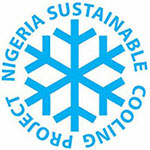The Standards Organisation of Nigeria (SON) has asserted its commitment to enforcing minimum standards for air conditioners through the ‘Scaling Up Energy Efficient and Climate-Friendly Cooling in Nigeria’s NDC Revision’ project.
The body entrusted with the task of setting and regulating product standards in the country, expressed this during a visit by members of the project team to the agency’s headquarters in Abuja.
Nigeria is currently in the process of developing Minimum Energy Performance Standards (MEPS) for air conditioners and refrigerants. This endeavour is of paramount importance as the country ardently seeks to curb greenhouse gas emissions. With a targeted reduction of energy intensity by 2.5 per cent annually, Nigeria strives to fulfil its Nationally Determined Contributions (NDCs).
The director of products certification at SON, Tersoo Orngudwem, in a remark, espoused the pivotal role of effective product regulation in a globalised world. He pointedly remarked, “In our interconnected world, the establishment of robust standards is imperative to thwart the influx of substandard products into our nation.”
Drawing attention to the issue of substandard products, Orngudwem shared a disconcerting observation, “We have recently been alerted about the illegal rebranding of air conditioners. These units, falsely labelled as inverter ACs and bearing the names of renowned manufacturers, are being directed towards the African market. Nigeria, with its substantial population of 220 million, is a prime target.”
The director said the situation called for immediate action.
“This is a wake-up call. On behalf of my colleagues, I assure you that this issue profoundly affects us. Through our Conformity Assessment Programme (SON CAP) and the Product Authentication Mark (PAM), we can address this challenge head-on. When consumers reject substandard products, it renders these items unsellable and effectively eradicates the market for them,” he added.
Highlighting the collaborative approach, Orngudwem emphasised, “Our partnership with environmental agencies like NESREA ensures the proper disposal of substandard products, particularly when they become electronic waste. By working together, we can not only deter consumers from purchasing inefficient ACs, but also effectively eliminate them from our market.”
The project director, Engr. Okon Ekpenyong offered a comprehensive overview of the ‘Scaling Up Energy Efficient and Climate-Friendly Cooling in Nigeria’s NDC Revision’ initiative.
He said the project, conducted in partnership with the Energy Commission of Nigeria (ECN), UNEP, Clean Cooling Collaborative and United for Efficiency (U4E), holds a catalytic role in Nigeria’s efforts to achieve its NDC target of an annual 2.5 per cent reduction in energy intensity across all sectors.
“This project operates on multiple fronts. Primarily, it aims to accelerate the transition from conventional and inefficient ACs to energy-efficient models. Additionally, it seeks to expedite the shift from ozone-depleting refrigerants, which are still present in many ACs, to low global warming refrigerants,” Ekpenyong explained.
The project director pointed out the project’s four main pillars, saying, “Firstly, we intend to develop a comprehensive policy framework that enhances existing energy performance standards. This includes refining the draft for air conditioners and ensuring its alignment with the ECOWAS sub-region. The project will tap into the expertise of stakeholders to establish these standards, and the process of translating these standards into law lies within SON’s purview.”
Ekpenyong also highlighted the project’s contribution to Nigeria’s National Cooling Action Plan, adding a complementary chapter that specifically addresses cooling concerns, even as he underscored the importance of collaboration with the National Council on Climate Change to seamlessly integrate project activities into the country’s NDC implementation plan.
“In order to achieve these ambitious goals, an extensive awareness creation programme will be imperative. The success of our efforts heavily depends on raising awareness among manufacturers, distributors, and end-users, all of whom are integral players in the field,” Ekpenyong added.
For his part, the project coordinator, Etiosa Uyigue acknowledged SON’s pivotal role in the project, noting the organisation’s unique position as a key driver in stopping the influx of substandard products and enforcing energy efficiency standards.
“In the quest to combat the dumping of substandard products, SON stands as a linchpin. The role of SON in ensuring standards enforcement is crucial to the success of this project,” Uyigue added.


